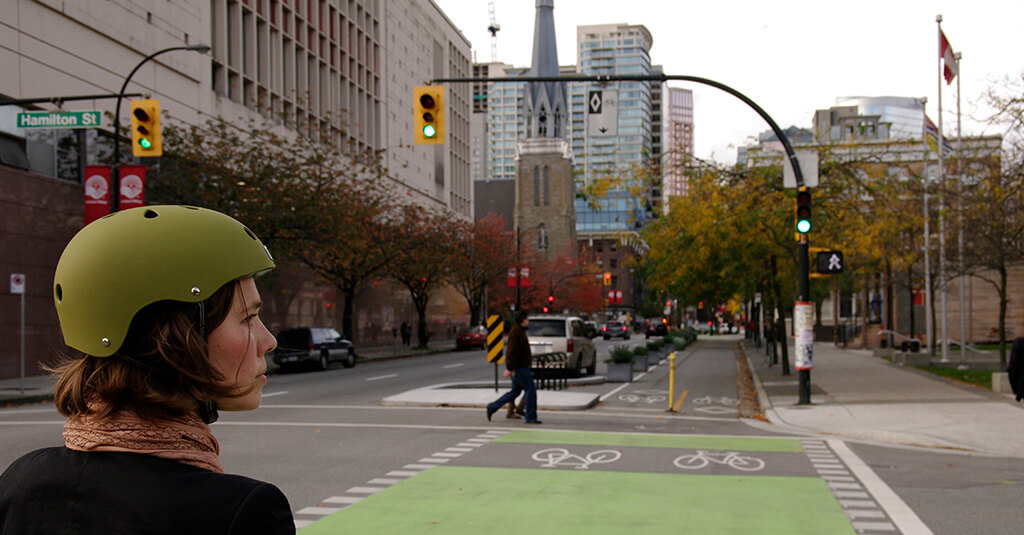
In this week’s episode of “I Can’t Believe We’re Still Talking About This,” researchers in Canada have determined that mandatory helmet laws have no impact on bicycling injury hospitalization rates across Canada. Other factors, namely mode share, were much more likely to affect the outcome.
A team of researchers led by Kay Teschke at the University of British Columbia (UBC) looked at bicycle-related hospitalization rates in different jurisdictions across Canada, some with mandatory helmets and others without. They also looked at other factors which may increase or decrease rates of hospitalization, such as infrastructure and mode share, and then analyzed the data to determine which factors influenced the outcome, and to what degree.
The study is interesting because it’s all contained within a fairly homogenous country with only minor variations in transportation policy, and minor variations in cultural norms around biking. The researchers analyzed each jurisdiction for exposure-based injury risk – the injury rate calculated as injuries per number of bike trips or per distance travelled by bike. “This measure allows between-jurisdiction comparisons of cycling safety, useful for assessing the value of different cycling conditions or laws that could guide future policy choice,” the authors write.
In their report released today, entitled ‘Bicycling injury hospitalisation rates in Canadian jurisdictions: analyses examining associations with helmet legislation and mode share,” Teschke and her team concluded that helmet legislation was not associated with hospitalization rates, including and specifically for injuries to the head, scalp, skull, face, or neck.
The factors that did have a measurable impact, the team determined, were mode share and sex. “For all injury causes, sex was associated with hospitalisation rates; females had rates consistently lower than males,” the authors explain. “For traffic-related injury causes, higher cycling mode share was consistently associated with lower hospitalisation rates.”
The authors suggest that transportation and health policymakers who aim to reduce bicycling injury rates should direct their focus to initiatives that increase cycling mode share and specifically rates of women cycling. “Bicycling routes designed to be physically separated from traffic or along quiet streets fit both these criteria and are associated with lower relative risks of injury,” they write.
Mandatory helmet laws have already been proven to reduce rates of cycling by either their inconvenience and discomfort, and/or by creating a culture of fear around biking. So if a high biking mode share is determined to reduce rates of injury, and mandatory helmet laws are determined to do basically nothing positive while simultaneously reducing the mode share, we are left only to conclude that mandatory helmet laws are counterproductive to public safety, and should be abolished.
Are we done now? Can we talk about something else?
Authors note: Suggesting an end to helmet laws is not to suggest and end to helmets. This is an evidence-based conclusion and limited exclusively to mandatory helmet legislation in the interest of public health, not a value judgement or opinion on anyone else’s personal choice. There are still many reasons one may want to wear a helmet and is free to do so. Biking really fast, biking in icy road conditions, biking in a city where you’re very likely to get hit by a car and are still waiting on that dedicated infrastructure, these are all good reasons to wear a helmet. Being male, apparently, is a good reason to wear a helmet.
Wear one, don’t wear one, it’s your choice. The point is, the laws are harmful.
Hilary Angus is the Online Editor at Momentum Mag. She recently started wearing a helmet because she drank too much beer and fell off of her bike and her mother made her promise to wear it, bike lanes or not. @HilaryAngus
Get your FREE copy of: Momentum Mag's Bike Lock Guide
In this guide, we share stats on bicycle theft, the best ways to lock your bike and which ways to avoid, types of locks to use, new technologies combating theft, a directory of brands and much more!
Thank you for your submission. Please check your inbox to download the guide!


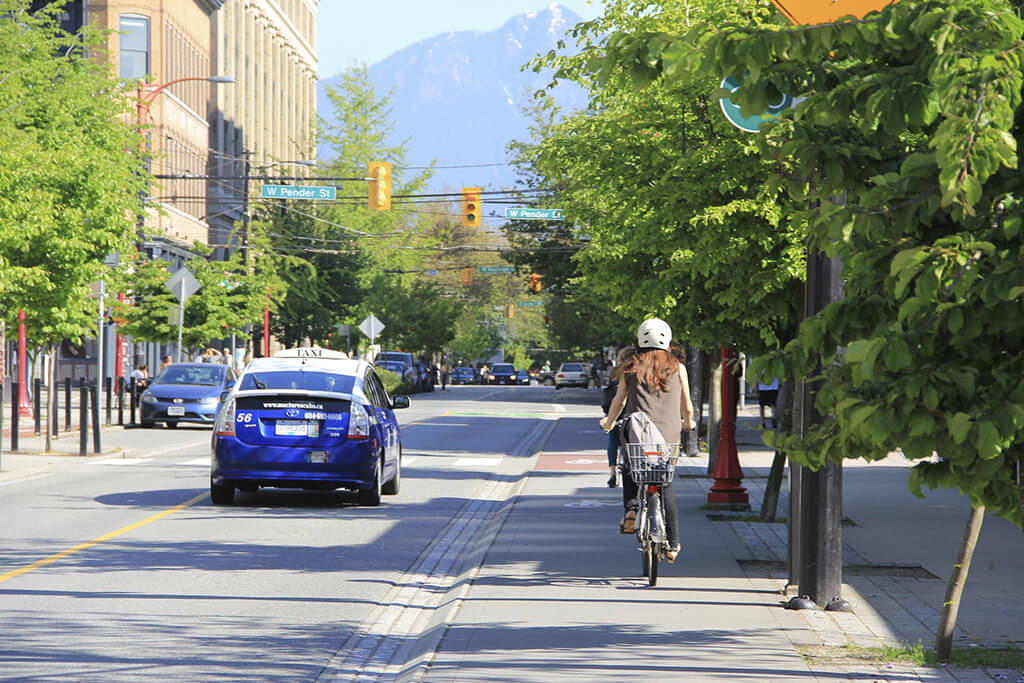


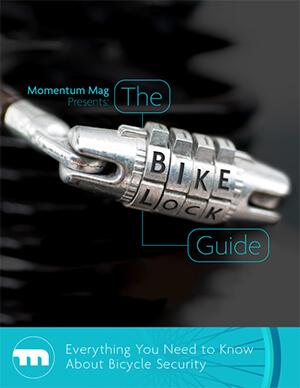


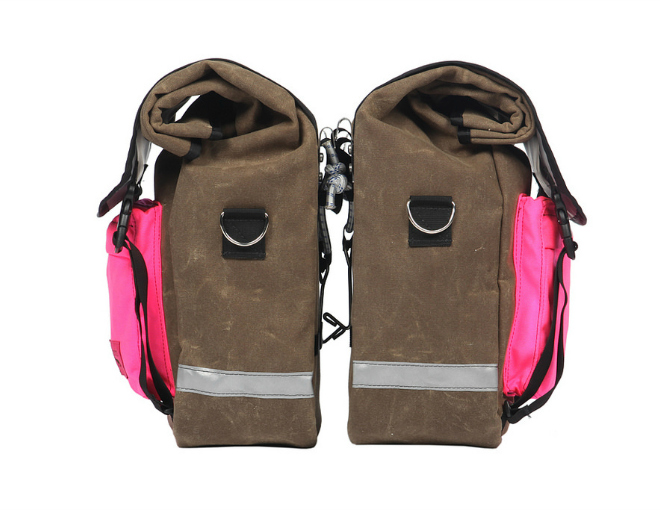

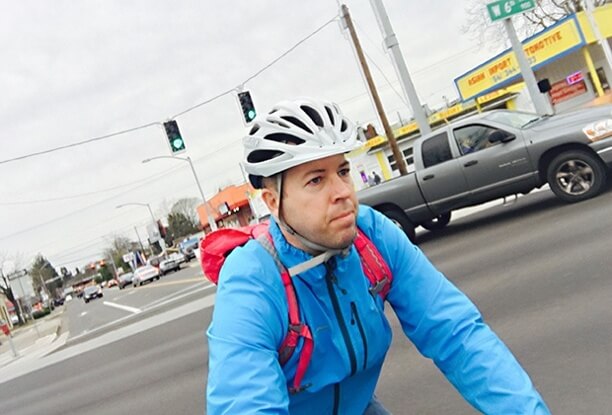

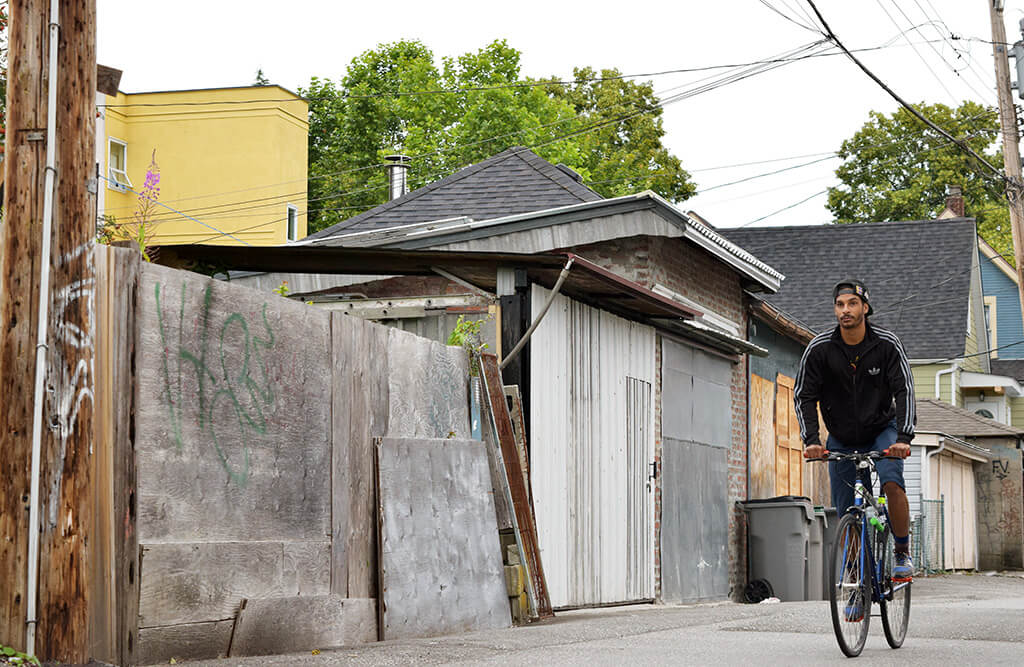







This study concludes “.. that transportation and health policymakers who aim to reduce bicycling injury rates should direct their focus to …… and specifically rates of women cycling”. Yep, if you are a guy, you have high rates of injury and there’s nothing you can do about it, according to this report. Most significantly, they only analysed whether differences in helmet legislation between Canadian states affected injury rates, not the wearing of helmets. (It is obvious to any intelligent researcher that variability between the states will be so high that it will swamp the state vs state differences in legislation, especially when the legislated states don’t have 100% helmet use and the non-legislated states 0% helmet use. It would have been good if they had studied helmet use and looked at the interactions of state x legislation. State x legislation x helmet use would have been good too, as long as it wasn’t affected by gender differences between states. But these people failed statistics 101 and research 101.)
I give them 12 out of 100 for believability. 10 is for getting it published and the other 2 is because they explain their mistakes quite well.
Annecdotals aren’t evidence, yet they’re often cited to support new laws or restrictions. Best practises based upon statistics should frame legislation, otherwise it’s simply a function of feelings.
What’s distasteful is the smugness that can accompany cycling and helmet use.
From my own personal experience I don’t get on my bike without a helmet. All three times I had serious accidents the only thing that saved me from more severe head injuries was my helmet. But that is just me and my experience…
T Thomas – Respectfully, I think you are totally missing the point. There is a huge difference between:
1) You should wear your helmet vs.
2) You have to wear your helmet
I choose not to ride an ATV because I think it’s too dangerous, and the rewards just aren’t there for me. But I don’t think it should be illegal to ride an ATV. Similarly, I choose to wear a helmet when I ride, because it makes me feel a little more secure, and my hair is just not very nice anyway. But I don’t think it should be illegal if someone wants to ride their bike without a helmet.
I work as an ER doc and can tell you that it would make a lot more sense to legislate mandatory helmet use in cars, because the vast majority of head injuries that I have seen over the years happen in cars. Why not start there?
I understand that there no need to wear helmets in places like the Netherlands or Denmark. Here, bike lanes are just painted white lines and in some of these share roads cars go as fast as 70 miles per hour. I want my helmet
So helmets bad? The study doesn’t say that, in fact on page 10 it says “Perhaps helmet laws simply influence injury severity, shifting the injury burden from deaths to hospitalisations.” That is the bear in the room. The study doesn’t address the severity rate and so any conclusion that helmets are ineffective in preventing death or reducing injury (and thus saving the public health care system dollars) is flawed. The best that can be said about this study is that it depends on how and where you ride, with or without a helmet, as to what your chances of winding up in the hospital are. This of course does not negate the need for other safety and education improvements, but if you value your brain and your life, keep wearing a helmet.
“but if you value your brain and your life, keep wearing a helmet.” Over-simplistic and therefore wrong. The evidence for cycle-helmets is at best equivocal. In some cases helmets make injuries worse, in some cases better. So if you can predict in advance, precisely what kind of accident you are going to have, wearing a helmet might in those circumstances might make sense, otherwise not.
But helmets also send a message, that cycling is risky – certainly riskier than it is, so wearing a helmet acts as a discouragement to others and there are risks from not cycling too. Taken in the round, helmets for cycling are a bad thing, for instance they assist motorists in victim-blaming and can encourage motorists to make risky decisions around cyclists.
http://www.cyclehelmets.org
Please don’t confuse your opinions with facts derived from evidence. Your Google search and reading FB gets you about 1% of the way to converting opinions to facts.
I was behind two fellows whose tires rubbed and both went down, one head bounced off the pavement, I’m wearing a helmet. However, I see your point about helmet laws being a distraction by the governments and an interference of bike infrastructure.
I appreciate your “enuff arredy” perspective on this. Thank you. Beyond the question of helmet law efficacy is that the relentless focus on helmets comes at the expense of so many other more important things that contribute directly to safety. Nobody ever talks about riding with earbuds (Darwin Award candidates), or infrastructure, or better enforcement of traffic laws (for cyclists too). It’s always helmets. Period. Game, set, match. Beyond the plain fact that helmet laws don’t decrease head injuries and, worse, discourage cycling because they make cycling appear a dangerous activity, you can rightly argue that they make cycling more dangerous than it would be otherwise because they reduce the number of people who ride. Numerous studies have consistently shown that general cycling safety increases as the number of cyclists on the road increases. Wear one, or don’t. But lose the earbuds.
Everybody has an axe to grind……..
“…if you value your brain and your life, keep wearing a helmet.”
“…lose the earbuds.”
Neither of you can point to definitive numbers that support your advocacy in these areas; your stances are based on applied logic — helmets add a layer between bone and asphalt, earbuds add a layer between the eardrum and sound. For YEARS, I eschewed earbuds, because they DISTRACTED me from the ride experience. They no longer do so, NOR DO THEY INTERFERE IN THE SLIGHTEST with me hearing approaching vehicles. ALL that is no longer discernible is conversation, something I can do without while pedaling, anyway.
After a crash in 2008 that would have been a LOCK for anyone else to wear a helmet for life, I put mine away in 2011. I’ve had several crashes since, mostly avoiding stupid people. Not so much as a HAIR touched pavement above the shoulders.
Believe what you want, practice what you want; keep your value judgments to yourself where they belong.
Comments are closed.